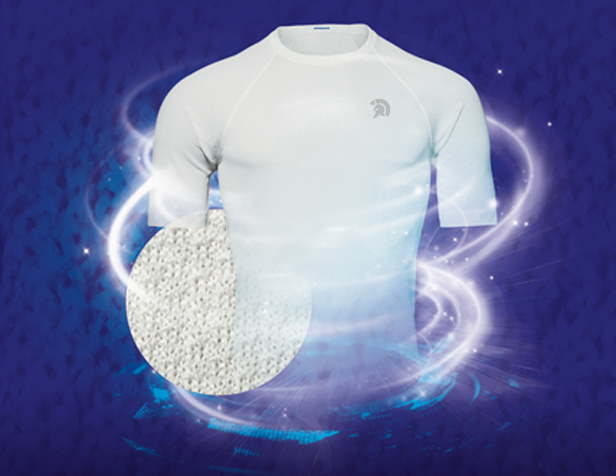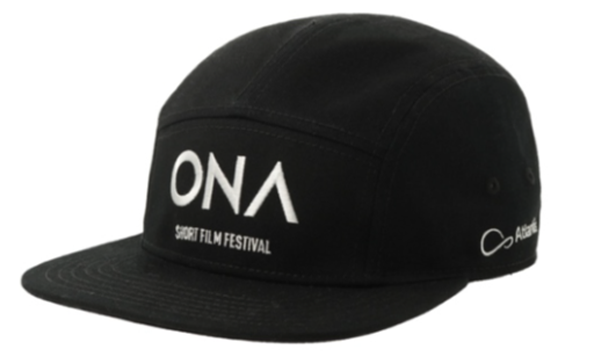Sustainability December 05, 2024
Sustainability Roundup: In Search of a Truly Circular Shirt
Several companies are looking at ways to scale textile-to-textile recycling, especially in light of new extended producer responsibility laws; plus, sustainable supplier Atlantis Headwear co-produced a short film focused on preserving the natural world.
Key Takeaways
• Innovative Recycling: French company Carbios says it has created the world’s first enzymatically recycled polyester T-shirt made entirely from textile waste.
• Sustainable Partnerships: Atlantis Headwear (asi/37380) has partnered with the Ona Film Festival to create sustainable merchandise and co-produce a short film emphasizing environmental preservation.
• Textile Recycling Initiative: Goodwill and Reju are collaborating with WM to advance textile recycling in North America, aiming to create a circular ecosystem for textile waste.
• Due Diligence Handbook: GOTS launched a handbook for auditors to promote sustainable practices, human rights and ethical business conduct in the textile sector.
A French company just created a 100% recycled polyester tee that can be recycled again and again thanks to “biorecycling technology.”
Most recycled polyester is made from PET plastic bottles that are crushed into chips before being heated and formed into yarn, but the true challenge for creating a circular economy in apparel is creating and scaling “fiber-to-fiber” recycling, where textiles can be made and remade in a closed loop without creating waste. Right now, less than 1% of the 124 million metric tons of textiles produced in 2023 were recycled into new fibers, according to the annual Materials Market Report from Textile Exchange.

French company Carbios announced recently that it had made a recycled polyester T-shirt made from 100% textile waste.
Carbios recently unveiled what it’s calling the world’s first enzymatically recycled polyester garment made from 100% textile waste using the company’s biorecycling technology. Carbios said it deliberately chose a plain, white T-shirt to showcase the technological achievement – noting that the tee was created from mixed and colored textile waste. Carbios is able to use enzymes to break down polyester into its fundamental building blocks, which are then reformed to produce biorecycled polyester that the company says is of the same quality as oil-based virgin polyester.
“It may look like an ordinary T-shirt, but make no mistake, the technology behind it is extraordinary,” said Emmanuel Ladent, CEO of Carbios. “Thanks to collaboration with our consortium partners, we have overcome many technical hurdles together to produce the world’s first enzymatically recycled T-shirt made entirely from biorecycled fibers.”
Less than 1%
of the 124 million metric tons
of textiles produced in 2023 were recycled into new fibers. (Textile Exchange)
The consortium – which includes brands like Patagonia, PUMA, Salomon and the parent company of Calvin Klein – supplied rolls and production cutting scraps to Carbios. The textile waste consisted of some mixed blends with cotton or elastane, as well as fabrics with various treatments, such as durable water repellent, and dyes, which make them complex to recycle using conventional methods. The collected waste was deconstructed into its original monomers, then repolymerized, spun into yarn and woven into new fabric by external partners, an important point showing that the process can be seamlessly integrated into existing manufacturing processes.
Carbios’ demonstration plant in Clermont-Ferrand, France, has been operational since 2021, and the company is currently building its first commercial plan to scale enzymatic PET recycling in Longlaville, France. The company also said several PET producers in Asia and Europe are interested in using its biorecycling technology in their own facilities.
Consortium members expressed excitement at the recycling milestone. “PUMA’s wish is to have 100% of our polyester coming from textile waste,” said Anne-Laure Descours, chief sourcing officer at PUMA, adding that Carbios’ announcement is “an important milestone toward achieving this and making our industry more circular.”
She added: “We now need to work together to make sure we can scale up this technology to make the largest possible impact.”
Atlantis Headwear Partners With Sustainability-Focused Film Festival

Atlantis Headwear (asi/37380) worked with the Ona Film Festival to design this cap made of 100% organic cotton.
Sustainable Italian supplier Atlantis Headwear (asi/37380) has partnered with the Ona Film Festival for the third year in a row. The annual event, held in Venice, Italy, has a mission to “inspire sustainable change through engaging stories” and combines sports-centered films with social and environmental topics.
The festival, in 2022, first partnered with Atlantis to create sustainable merchandise that reflected the event’s ethos. Together, Ona and Atlantis designed a sustainable cap that became the symbol of the event. Since then, the partnership has deepened. For the 2024 festival, Atlantis and Ona co-produced a short film called Facing the Elements, which takes viewers on a journey through remote, untouched landscapes and emphasizes the importance of preserving it for future generations.
“Working with such a genuine, passionate and sustainability-oriented team at Ona has been an inspiring journey,” said Federico Pasini, vice president at Atlantis.
Watch Facing the Elements, the short film created by Atlantis Headwear and Ona.
Goodwill & Reju Collaborate With WM To Advance Textile Recycling
Goodwill and Reju, in collaboration with WM, are pursuing a multiyear initiative designed to help advance textile recycling in North America. They plan to develop a collaborative model for regional textile collection, sortation, reuse and recycling that’s intended to divert more nonwearable textile materials from the waste stream.
The collaboration comes amid increased focus on extended producer responsibility (EPR) and California’s recent Responsible Textile Recovery Act, requiring manufacturers to implement and fund a statewide reuse, repair and recycling program for clothing, towels, bedding and upholstery.
Goodwill, a workforce development network and secondhand retailer comprised of 154 local nonprofits across the U.S. and Canada, and waste management provider WM plan to work together on pilots to collect, sort and grade discarded textiles for resale. A portion of the remaining textiles, not suitable for resale, would be provided to Reju, a progressive textile-to-textile regeneration company. The feedstock would potentially be recycled and regenerated into new materials when Reju builds a U.S.-based facility.
“To tackle the challenges posed by discarded textiles, we need radical collaboration and cooperation, and through our potential project with Goodwill and WM, we are building the ecosystem to achieve textile circularity,” said Patrik Frisk, CEO of Reju. “Reuse is, and will continue to be, the highest value and is essential to the circular economic model for the benefit of all. Yet, among the products that are not reused, less than 1% are recycled globally today. A textile-to-textile circular ecosystem can only be optimized when more textiles are diverted from the waste stream and into the recovery cycle. Goodwill and WM are looking to play a critical role in recovery through the collection and sorting of textiles in North America.”
Reju opened its first demonstration plant, Regeneration Hub Zero, in Frankfurt, Germany, in September. The plant is expected to begin producing recycled polyester, which the company says will have a 50% lower carbon footprint than virgin polyester and can be regenerated infinitely, in 2025. In the future, Reju plans to build a regeneration hub in the U.S. to serve the American market.
“With our more than 3,300 stores and donation centers within 10 miles of 83% of the U.S. population, Goodwill has the infrastructure and the public trust to serve as a collection point for textiles. As the EPR movement gains force, we are inviting brands to work with us to create new solutions for managing product,” said Jennifer Lake, president and CEO of Goodwill of the Finger Lakes and chair of the Goodwill Circularity Subcommittee.
In 2023, Goodwill recovered the value of over 4.3 billion pounds of donated products, which supported the development of skills training, job placement, career advancement opportunities and other community-based services for more than 1.7 million people.
GOTS Launches Due Diligence Handbook for Auditors
Global Standard, the nonprofit that manages the Global Organic Textile Standard (GOTS), has launched the GOTS Due Diligence Handbook for Auditors. The resource, created in partnership with The Hague-based UpRights Foundation, is a critical step in promoting sustainable practices, human rights and ethical business conduct across the textile sector, according to GOTS.
“This handbook provides our certification bodies with the knowledge and guidance they now need to ensure that the highest standards of environmental and human rights due diligence are met and verified,” said Ruslan Alyamkin of Global Standard. “By aligning with international frameworks and the recent legislative developments, we are further strengthening Global Standard’s mission to promote sustainable, transparent and socially responsible practices throughout global textile supply chains.”

Promo for the Planet is your destination for the latest news, biggest trends and best ideas to help build a more sustainable and socially-responsible industry.
